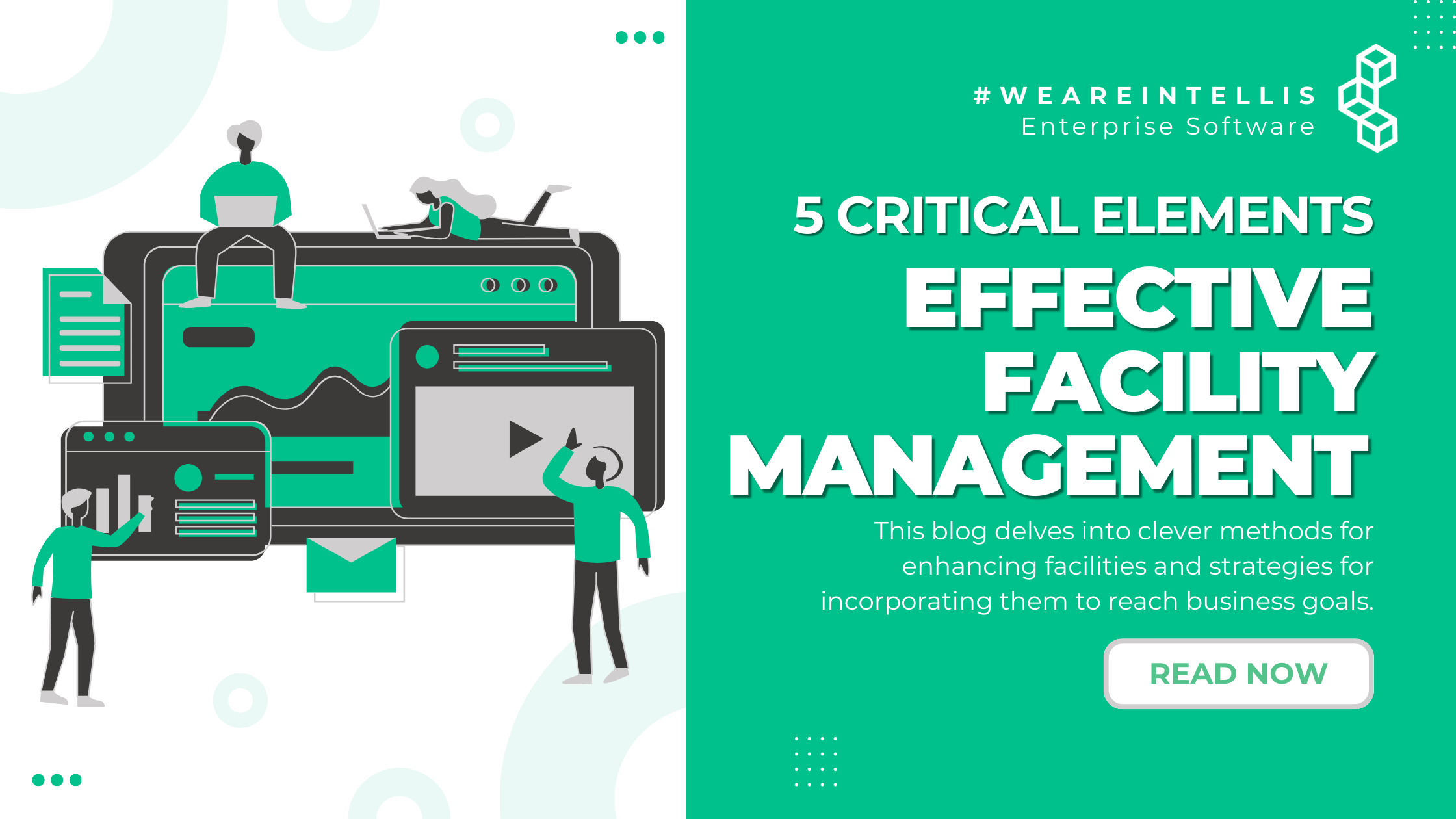Key Fads Forming the Future of Center Administration in 2024
As we look in advance to 2024, the landscape of facility administration is positioned for considerable makeover, driven by numerous essential trends. The assimilation of wise structure modern technologies and a change in the direction of data-driven decision-making assurance to boost functional performance while focusing on sustainability in method.
Smart Structure Technologies

Smart building innovations encompass a wide array of systems, including intelligent lighting, HVAC controls, and protection systems. By integrating these systems, facility supervisors can monitor and adjust criteria in real-time, bring about substantial decreases in power waste and operational expenses. For example, wise sensing units can detect occupancy levels and readjust lights and temperature level accordingly, ensuring that power is just used when necessary.
Additionally, these technologies promote enhanced data collection, enabling organizations to track use patterns and identify chances for further enhancements. The execution of clever structure modern technologies not just contributes to sustainability goals but also develops much healthier workplace that can improve staff member productivity and contentment.
As we relocate into 2024, the adoption of wise structure technologies will likely speed up, mirroring a more comprehensive shift in the direction of even more intelligent, receptive, and sustainable center management techniques.
Data-Driven Choice Making
Significantly, companies are leveraging data-driven decision making to boost center management techniques. By taking advantage of data analytics, center managers can acquire actionable insights that substantially improve functional performance and resource allocation. The combination of sophisticated innovations, such as IoT sensing units and real-time surveillance systems, makes it possible for the collection of vast quantities of information on building efficiency, occupancy rates, and power usage.
This wide range of information allows center managers to determine trends, forecast maintenance demands, and proactively address problems before they intensify. For instance, anticipating analytics can anticipate devices failings, lowering downtime and repair work prices. In addition, information visualization devices assist in better interaction amongst stakeholders, guaranteeing that educated choices are made collaboratively.
In addition, data-driven approaches enhance critical planning by allowing facility managers to evaluate the effectiveness of present techniques and make informed options regarding investments in modern technology or framework. As organizations increasingly focus on functional quality, data-driven decision production is positioned to end up being a cornerstone of successful facility monitoring techniques in 2024 and beyond. Ultimately, the ability to leverage information successfully will empower organizations to produce a lot more effective, productive, and resistant facilities.
Sustainability and Eco-friendly Practices
The emphasis on data-driven decision making normally straightens with the growing concentrate on sustainability and green practices within center management. As organizations progressively prioritize environmental responsibility, facility supervisors are leveraging analytics to maximize resource usage, decrease waste, and reduce carbon footprints. This calculated strategy makes it possible for the combination of energy-efficient systems, go to website such as LED illumination, wise heating and cooling controls, and sustainable power sources into facility operations.
Moreover, the implementation of sustainable methods expands beyond energy consumption. Facility supervisors are promoting and adopting environmentally friendly materials reusing efforts to develop a round economy within their centers. This not just improves the ecological account of the company however also cultivates a culture of sustainability among workers.
Compliance with environmental guidelines is an additional vital element driving the adoption of green methods. By utilizing information analytics, facility managers can check conformity metrics and determine areas for enhancement, ensuring adherence to global and local sustainability standards.
Hybrid Work Models
A significant shift in the direction of crossbreed job designs is improving the landscape of facility monitoring in 2024. This paradigm combines in-office and remote work, demanding a reevaluation of space utilization, source appropriation, and employee involvement methods. Organizations are progressively acknowledging the importance of versatile work areas that accommodate diverse demands and choices.
Facility supervisors have to adapt by executing flexible office designs that support collaborative efforts while providing areas for focused job. This includes the assimilation of innovation to promote seamless interaction and cooperation among remote and in-office workers. Smart structure options, equipped with analytics and sensing units, permit real-time surveillance of area usage, making it possible for companies to maximize their atmospheres effectively.
Additionally, hybrid job versions stress the need for effective facility monitoring that focuses on staff member experience. This incorporates not only modern technology and space style however likewise the growth of policies that promote a well balanced work-life dynamic. As companies navigate this shift, the role of facility management ends up being crucial in creating an active office that cultivates efficiency and drives organizational success. In essence, the hybrid job model is changing center monitoring, encouraging a positive technique to fulfill the advancing needs of the labor force.
Improved Resident Health
As companies embrace hybrid work versions, a heightened focus on resident wellness is coming to be essential to center administration approaches. Facility Management. This shift acknowledges that a healthy and balanced and satisfied labor force directly affects efficiency and retention prices. Center supervisors are now prioritizing atmospheres that advertise mental and physical health, incorporating components such as natural lights, biophilic design, and easily accessible wellness resources

Technology plays an find more info important duty in this development. Smart structure systems can check ecological aspects and change settings in real-time, guaranteeing optimal convenience levels - Facility find this Management. Comments mechanisms, such as occupancy sensors and staff member studies, permit facility supervisors to constantly refine wellness initiatives based on occupant needs.

Verdict
In 2024, the future of facility administration will be dramatically influenced by the combination of smart structure technologies and data-driven decision-making, cultivating enhanced functional efficiency. These trends collectively highlight the evolving landscape of facility administration in action to modern challenges and chances.
Center supervisors are advertising and taking on green materials reusing initiatives to create a round economy within their centers.A significant change towards crossbreed job versions is reshaping the landscape of center management in 2024.In addition, hybrid job versions highlight the requirement for reliable facility management that focuses on staff member experience.As organizations accept hybrid work versions, a heightened focus on resident wellness is coming to be essential to facility monitoring strategies.In 2024, the future of center management will be substantially affected by the assimilation of wise structure modern technologies and data-driven decision-making, cultivating boosted operational effectiveness.